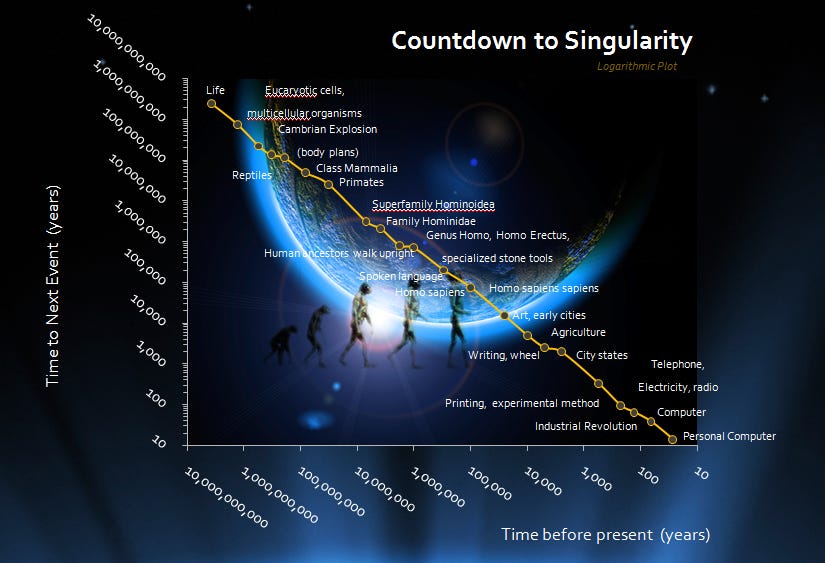Looking Towards and After the AI Singularity
The Existential dream and dangers of the countdown
Hey Everyone,
I have been reading AI as a Civilizational Risk, a series of articles on Less Wrong by Pasha Kamyshev and it’s got me thinking.
We are obsessed as society for AGI and consequently a “Singularity” Moment in human history. I still remember growing up on The Singularity is Near, by Ray Kurzweil. It’s hard to believe it’s been nearly 20 years since that was published and how far we seem to be from any kind of Singularity or AGI.
While futurist Ray Kurzweil predicted 17 years ago that the singularity—the time when the abilities of a computer overtake the abilities of the human brain—will occur in about 2045, I’m watching humanity more or less over-estimate its own technological brilliance and the pace of innovation.
The singularity is that point in time when all the advances in technology, particularly in artificial intelligence (AI), will lead to machines that are smarter than human beings. But it’s also a period when A.I. is about to self-learn at a pace that’s no longer really understandable to human beings.
The idea that human history is approaching a “singularity”—that ordinary humans will someday be overtaken by artificially intelligent machines or cognitively enhanced biological intelligence, or both—has moved from the realm of science fiction to serious debate in recent decades.
As artificial intelligence’s evolution begins to accelerate in the 2020s, there are significant dangers for humanity. To quote from Pasha’s series:
Empires have collapsed previously due to decreases in social cohesion. Narrow AIs, such as large language models combined with overly aggressive social media A/B testing aimed at behavioral modification, can cause decreases in social cohesion. This anti-economy (economy of externalities) of behavioral modification centralizes benefits to a few tech controllers, distributes costs, and is similar to physical pollution.
A.I. creates and is creating a new kind of behavior modification. This is partially the fault of Venture capitalists and a powerful financial elite. Let’s take Elon Musk, for example. Just as Tesla claims to be prioritizing humanoid robots, Goldmen Sachs has come out with a new ‘Prediction’. Humanoid robots, like the recently unveiled Tesla Bot, could be a $150 billion-a-year business within the next 15 years, according to a new Goldman Sachs report.



